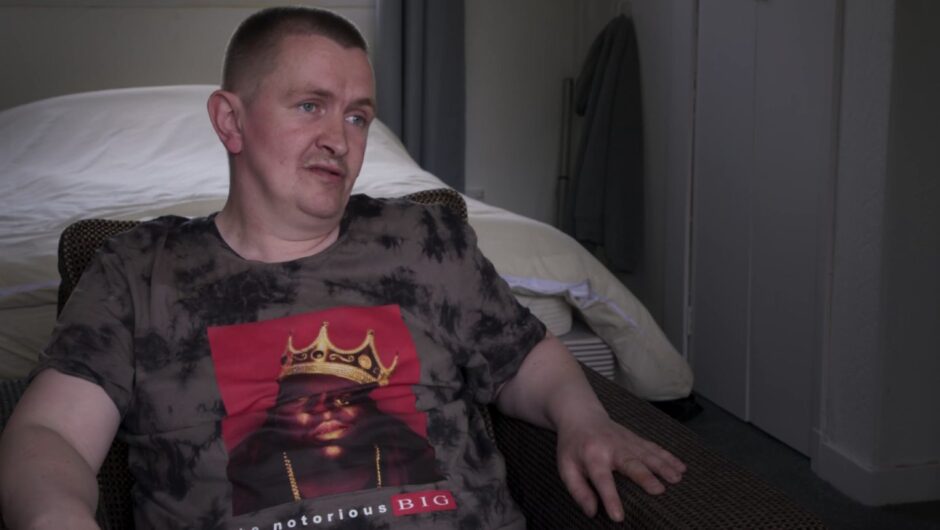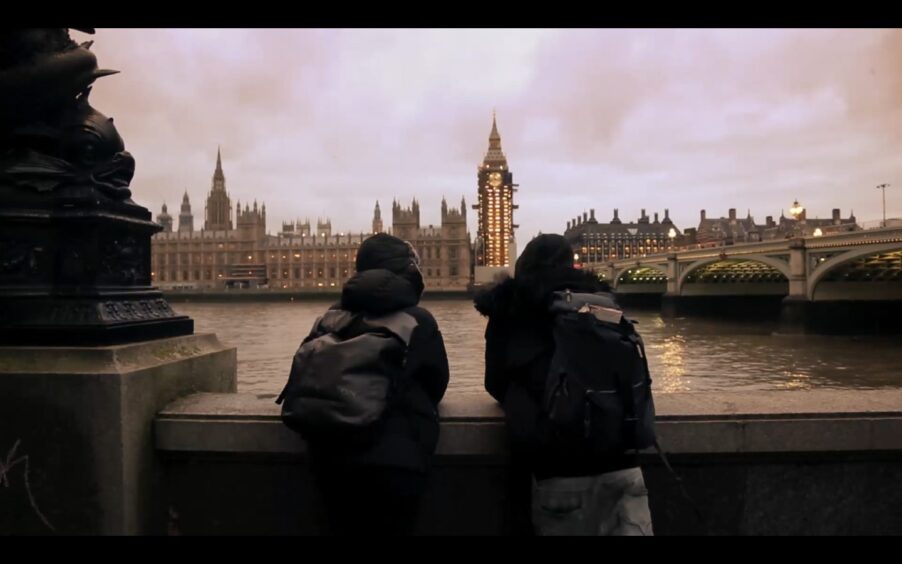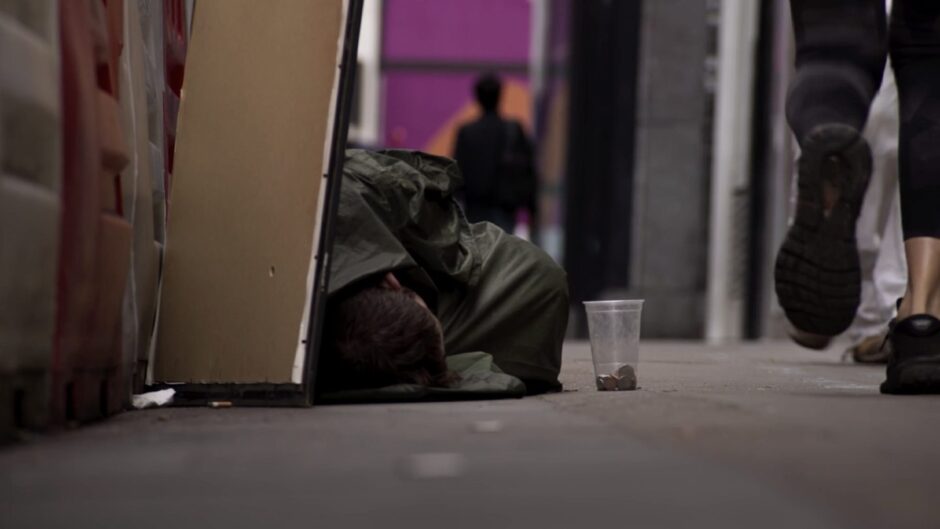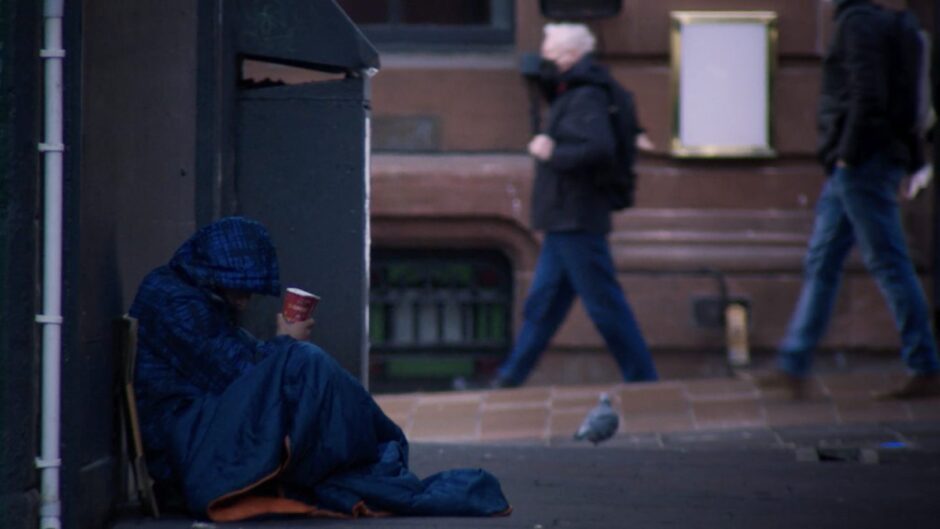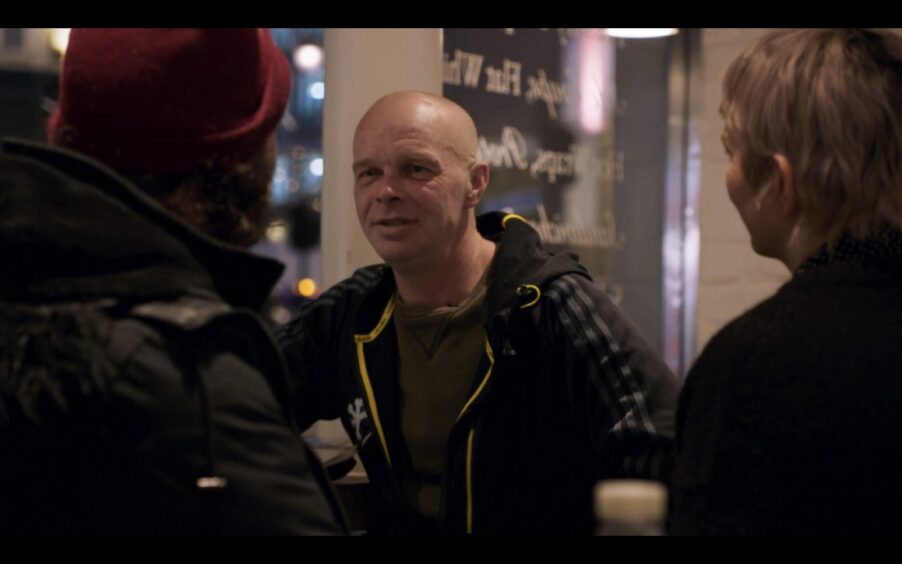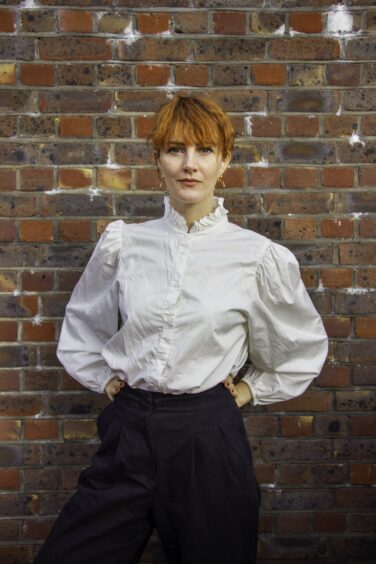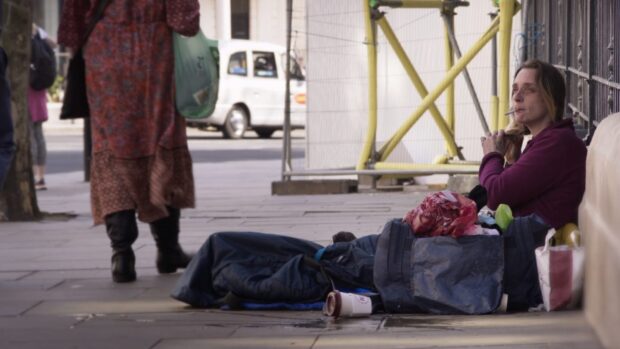
He is the son of an alcoholic father and a mother racked by poor mental health.
One of six kids born into a Glasgow family, he secured three Highers in maths, chemistry and physics, and a place at university. The world should have been his oyster. It was not.
At 17, tormented by his traumatic childhood, he was on heroin and on the street.
Today, after losing three of his siblings to drug and alcohol abuse and having yo-yoed in and out of homelessness, Jamie has reclaimed his life.
He has a “secure housing first flat” and a place at Glasgow University to study nuclear chemistry and physics thanks to Housing First, a ground-breaking housing and support organisation in the city as part of a UK pilot following the success of the model in Finland.
Jamie is proof there can be a cure for the homelessness that blights 320,000 people in the UK, four in five of whom suffer from mental health issues. Now his story – and the stories of others like him – are being brought to the big screen in Someone’s Daughter, Someone’s Son.
It premieres on Friday at Glasgow Film Theatre with original music written by Bryan Adams and supported by fellow musician Sam Fender and TV presenter Jay Blades.
The film is directed by award-winning documentary maker Lorna Tucker, who was herself on the street at age 14 and spent two years sleeping under London’s Waterloo Bridge.
Her experience – drug addiction, prostitution, being set on fire and urinated on, and the murder and overdose of her friends – is powerfully relived alongside insights from respected agencies and experts.
Tucker told The Sunday Post: “Having fought my way into the film industry, I was scared if people found out about it, they might judge me and wouldn’t work with me. But in lockdown people were saying it was amazing homeless people were taken off the street during the pandemic.”
While it proved it could be done, she says the process went ahead without the support to make it sustainable.
The mum of three explained: “People on the street are incredibly broken. In lockdown they were off the street, but hadn’t been given wrap-around support. Where were they going to go afterwards? Who was going to give them the therapy and help they needed?”
Jamie is an example of getting it right, she said. In the documentary he tells Big Issue magazine founder John Bird – a campaigner for early intervention – how he was rehomed in the past but, because he “was no longer a statistic”, authorities “were not interested” in helping him further – even though it was known that, without support, it was “inevitable” he would become homeless again.
Housing First “was the complete opposite”, said Jamie. “I met them one week and they got me a home the next.” He was also allocated a support worker who, he says, “will go to meetings with me if I am anxious or not feeling great mentally or just come round for a chat”.
The organisation’s head of homelessness and prevention, Nicky Miller, told The Post it began 10 years ago with investment from Turning Point Scotland to provide intensive support to transition people into their own home – but the home was not conditional on someone continuing with support.
He said: “In many ‘homelessness’ services people are expected to prove they are ready for their own home, moving between accommodation, increasing their trauma. If they fail, they start this process over again. Housing First flips this on its head and helps people access a house as quickly as possible.”
Ten years after bringing Housing First to the UK, he said its internal review “found a tenancy sustainment rate of 85% for people we supported”. But he added: “Housing First alone cannot end homelessness and we need to strengthen our approach to prevention.”
Tucker said: “Scotland is leading the way. Jamie was the perfect person to share his story and how Housing First has given him the chance of a life he never dreamed he could have.
“It is possible to end homelessness. Crisis, Shelter, London Connection, Centre Point, and now Liberty – everyday people are getting behind us. Let’s shout now and shout loud enough because the homelessness figures are going up. It’s the worst it has been in 10 years. We are at a real tipping point. But we are at a place and time where we can make a difference if we act.”
In numbers
Between April 1 2022, and March 31 2023, a total of 32,242 households in Scotland were assessed as homeless or threatened with homelessness – one every 16 minutes. In the same period, 16,263 children became homeless – 45 each day on average.
On March 31 2023, there were 29,652 live homeless applications in Scotland – a 15% increase on 2022. Applications for housing where at least one member of the family had slept rough in the previous three months were 2,143 in 2021-22 rising to 2,438 in 2022-23 – a 14% increase.
Shelter Scotland believes the rough-sleeping statistics could be just the tip of the iceberg.
Someone’s Daughter, Someone’s Son will be showing in Glasgow on 9th February, tickets here.
Join the campaign at someonesdaughterfilm.org

Enjoy the convenience of having The Sunday Post delivered as a digital ePaper straight to your smartphone, tablet or computer.
Subscribe for only £5.49 a month and enjoy all the benefits of the printed paper as a digital replica.
Subscribe